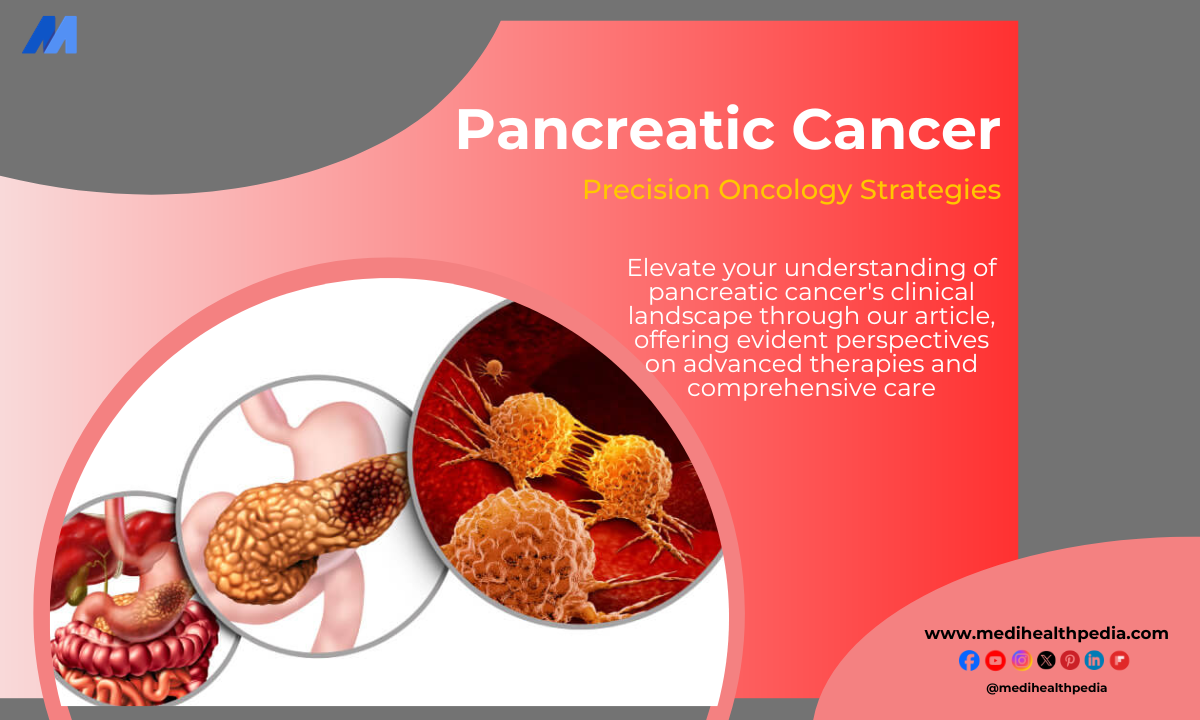Pancreatic Cancer Unveiled: Understanding the Battle Within
- Pancreatic Cancer Unveiled: Understanding the Battle Within
Introduction
Pancreatic cancer is a formidable adversary, presenting unique challenges due to its late diagnosis and aggressive nature. In this comprehensive guide, we’ll explore the intricacies of pancreatic cancer, differentiating between benign and malignant forms. We’ll cover practice essentials, including signs and symptoms, clinical presentation, stages of cancer, workup, potential complications, conventional treatment options, prevention strategies, herbal remedies for treatment, lifestyle modifications, and conclude with valuable insights for those facing this challenging diagnosis.

Understanding the Basics
Before delving into the specifics of pancreatic cancer, it’s essential to establish a foundational understanding of the pancreas and its critical role in our bodies.
- The Pancreas: A Vital Organ
The pancreas, a crucial organ nestled behind the stomach, serves dual roles in the human body. It primarily produces digestive enzymes that help break down food, and it secretes hormones, including insulin, which regulate blood sugar levels.
- Digestive Enzymes at Work
The pancreas manufactures several enzymes, such as amylase, lipase, and protease, which are released into the small intestine to assist in the digestion of carbohydrates, fats, and proteins found in our diet.
- Hormones and Blood Sugar Regulation
Within the pancreas, clusters of cells called the islets of Langerhans produce hormones like insulin and glucagon, crucial for regulating blood sugar levels and maintaining overall metabolic balance.
Now that we’ve established the pancreas’s essential functions, let’s delve into the complexities of pancreatic cancer.
Malignancy Looms
Pancreatic cancer, often characterized by its late diagnosis and rapid progression, is a formidable opponent in the realm of oncology.
Difference Between Benign and Malignant Pancreatic Conditions
It’s important to differentiate between benign and malignant pancreatic conditions, as the treatment and prognosis are vastly different:
Benign Pancreatic Conditions:
- Non-cancerous growths or lesions in the pancreas.
- Typically do not invade nearby tissues or spread to other parts of the body.
- Less aggressive and usually easier to manage.
Malignant Pancreatic Conditions (Pancreatic Cancer):
- Cancerous tumors in the pancreas that can invade surrounding tissues and metastasize.
- Highly aggressive and challenging to treat, especially if not detected early.
Clinical Presentation
Pancreatic cancer often remains silent in its early stages, making early detection challenging. Symptoms may not manifest until the disease has advanced. Common clinical presentations may include:
- Jaundice: Yellowing of the skin and eyes due to blocked bile ducts.
- Abdominal Pain: Often radiating to the back and worsening after eating.
- Unexplained Weight Loss: A sudden and unintended drop in weight.
- Loss of Appetite: A decreased desire to eat, leading to reduced calorie intake.
- Fatigue: Persistent tiredness and weakness.
- New-Onset Diabetes: The development of diabetes, especially in those without prior risk factors.
- Digestive Problems: Problems with digestion and absorption of nutrients, leading to diarrhea and steatorrhea (foul-smelling, pale stools).
Stages of Pancreatic Cancer
Pancreatic cancer is classified into stages, which help determine the extent of the disease and guide treatment decisions. The stages range from 0 (localized cancer) to IV (advanced cancer that has spread to distant organs). Understanding the stage is essential for creating an appropriate treatment plan.
Workup
Diagnosing pancreatic cancer typically involves a combination of clinical evaluation, imaging studies, and laboratory tests:
- Imaging Studies
- CT Scan: A computed tomography scan can provide detailed images of the pancreas and surrounding structures.
- MRI: Magnetic resonance imaging offers additional views of the pancreas.
- Endoscopic Ultrasound (EUS): An endoscope with an ultrasound probe can help assess the pancreas and surrounding lymph nodes.
- Endoscopic Retrograde Cholangiopancreatography (ERCP): This procedure helps visualize the pancreatic and bile ducts.
- Tumor Markers
Blood tests may measure specific tumor markers, such as CA 19-9, which may be elevated in individuals with pancreatic cancer. However, these markers alone are not definitive for diagnosis.
- Biopsy
A tissue biopsy, obtained through endoscopy or fine-needle aspiration, is often necessary to confirm the diagnosis of pancreatic cancer.
Complications and Associated Conditions
Pancreatic cancer can lead to various complications, including:
- Obstructive Jaundice: As the tumor blocks the bile duct, it causes jaundice.
- Gastrointestinal Obstruction: Tumors can obstruct the digestive tract, leading to nausea and vomiting.
- Venous Thromboembolism: An increased risk of blood clots.
- Pain: Severe abdominal or back pain is common.
- Liver and Kidney Problems: The spread of cancer can affect these vital organs.
Conventional Treatment Options
The treatment of pancreatic cancer depends on the stage, location, and overall health of the patient. Common treatment approaches include:
- Surgery
- Whipple Procedure: A complex surgery to remove the head of the pancreas, part of the small intestine, the gallbladder, and the bile duct.
- Distal Pancreatectomy: Removal of the body and tail of the pancreas.
- Palliative Surgery: Procedures to relieve symptoms and improve quality of life.
- Radiation Therapy
Radiation therapy uses high-energy beams to target and destroy cancer cells. It may be used before or after surgery or in cases where surgery is not an option.
- Chemotherapy
Chemotherapy drugs, often given in combination, target and kill cancer cells. They can be used to shrink tumors before surgery, destroy remaining cancer cells post-surgery, or manage advanced cancer.
- Targeted Therapy
Targeted therapy medications are designed to specifically interfere with the growth and spread of cancer cells. They are often used in combination with chemotherapy.
- Immunotherapy
Immunotherapy aims to harness the body’s immune system to target and eliminate cancer cells. This approach is still under investigation for pancreatic cancer.
Prevention Strategies
Preventing pancreatic cancer primarily involves managing risk factors:
- Smoking Cessation: Quitting smoking is one of the most effective ways to reduce the risk of pancreatic cancer.
- Healthy Diet: Eating a diet rich in fruits, vegetables, and whole grains may lower the risk.
- Maintain a Healthy Weight: Achieving and maintaining a healthy weight can reduce the risk of many cancers, including pancreatic cancer.
Herbal Medicines
While herbal remedies are not a primary treatment for pancreatic cancer, some may provide supportive benefits:
- Turmeric (Curcumin): Known for its anti-inflammatory properties, curcumin may have potential as an adjunct therapy.
- Green Tea: Epigallocatechin gallate (EGCG) found in green tea has shown promise in laboratory studies.
- Mistletoe Extract (Iscador): Used in some complementary cancer treatments, mistletoe may be considered in conjunction with conventional therapies.
However, herbal medicines should be used under the guidance of healthcare providers and never as a substitute for established treatments.
Lifestyle Modifications
Lifestyle modifications can have a significant impact on the management and overall well-being of individuals with pancreatic cancer:
- Nutrition: Ensuring a well-balanced diet to support overall health and maintain strength.
- Physical Activity: Engaging in regular exercise as appropriate, under the guidance of healthcare providers.
- Emotional Support: Seeking emotional support through counseling or support groups can be beneficial.
Conclusion
Pancreatic cancer is a formidable opponent, often diagnosed at an advanced stage, making treatment and management challenging. Understanding the signs and symptoms is crucial, as early detection can significantly improve prognosis.
Accurate diagnosis, appropriate treatment, and comprehensive care are vital for those facing pancreatic cancer. While herbal remedies and lifestyle modifications can provide support, they should always be used under the guidance of healthcare providers.
In conclusion, a multi-faceted approach to the battle against pancreatic cancer, combining conventional treatment, supportive therapies, and lifestyle adjustments, can help individuals confront this formidable foe and work towards improved quality of life and well-being.

